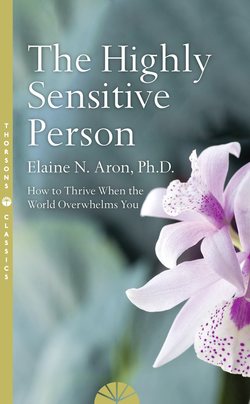Читать книгу The Highly Sensitive Person - Elaine N. Aron - Страница 21
The Good News and the Not-So-Good
ОглавлениеWhat this difference in arousability means is that you notice levels of stimulation that go unobserved by others. This is true whether we are talking about subtle sounds, sights, or physical sensations like pain. It is not that your hearing, vision, or other senses are more acute (plenty of HSPs wear glasses). The difference careful processing of information. We reflect more on everything. And we sort things into finer distinctions. Like those machines that grade fruit by size—we sort into ten sizes while others sort into two or three.
This greater awareness of the subtle tends to make you more intuitive, which simply means picking up and working through information in a semiconscious or unconscious way. The result is that you often “just know” without realizing how. Furthermore, this deeper processing of subtle details causes you to consider the past or future more. You “just know” how things got to be the way they are or how they are going to turn out. This is that “sixth sense” people talk about. It can be wrong, of course, just as your eyes and ears can be wrong, but your intuition is right often enough that HSPs tend to be visionaries, highly intuitive artists, or inventors, as well as more conscientious, cautious, and wise people.
The downside of the trait shows up at more intense levels of stimulation. What is moderately arousing for most people is highly arousing for HSPs. What is highly arousing for most people causes an HSP to become very frazzled indeed, until they reach a shutdown point called “transmarginal inhibition.” Transmarginal inhibition was first discussed around the turn of the century by the Russian physiologist Ivan Pavlov, who was convinced that the most basic inherited difference among people was how soon they reach this shutdown point and that the quick-to-shut-down have a fundamentally different type of nervous system.
No one likes being overaroused, HSP or not. A person feels out of control, and the whole body warns that it is in trouble. Overarousal often means failing to perform at one’s best. Of course, it can also mean danger. An extra dread of overarousal may even be built into all of us. Since a newborn cannot run or fight or even recognize danger, it is best if it howls at anything new, anything arousing at all, so that grown-ups can come and rescue it.
Like the fire department, we HSPs mostly respond to false alarms. But if our sensitivity saves a life even once, it is a trait that has a genetic payoff. So, yes, when our trait leads to overarousal, it is a nuisance. But it is part of a package deal with many advantages.
